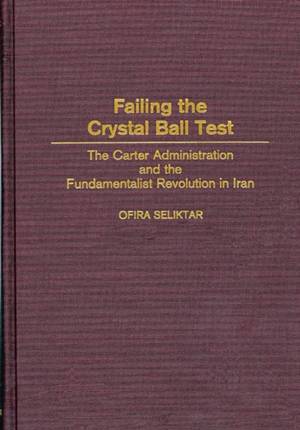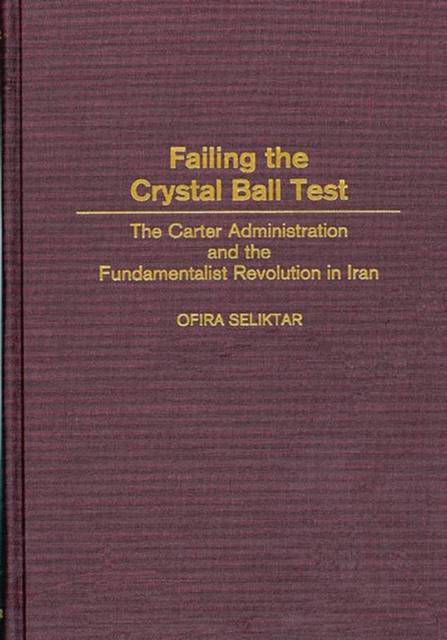
- Retrait gratuit dans votre magasin Club
- 7.000.000 titres dans notre catalogue
- Payer en toute sécurité
- Toujours un magasin près de chez vous
- Retrait gratuit dans votre magasin Club
- 7.000.0000 titres dans notre catalogue
- Payer en toute sécurité
- Toujours un magasin près de chez vous
Failing the Crystal Ball Test
The Carter Administration and the Fundamentalist Revolution in Iran
Ofira SeliktarDescription
With the Iranian revolution as her focal point, Seliktar offers a systematic analysis of predictive failure in foreign policy at the paradigmatic, policy, and intelligence levels. Seliktar first examines how social science paradigms determine conceptualizations of political change, and then applies that analysis to understanding New Internationalism, the Carter administration's foreign policy philosophy at the time of the Shah's fall from power. Based in part on classified documents seized during the takeover of the American embassy, Failing the Crystal Ball Test is a valuable addition to Middle Eastern studies, international relations, and comparative politics collections.
Seliktar engages in a general discussion of the problems entailed in correctly assessing the political legitimacy of foreign regimes, and describes the origins of New Internationalism as influenced by the New Left dependency theories. Examining President Carter's application of New Internationalism to Iran, Seliktar presents an account first of political influences on the predictive process during the early stages of revolution, and then of the administration's misreading of the likelihood of a fundamentalist regime in Teheran.Spécifications
Parties prenantes
- Auteur(s) :
- Editeur:
Contenu
- Nombre de pages :
- 272
- Langue:
- Anglais
Caractéristiques
- EAN:
- 9780275968724
- Date de parution :
- 30-08-00
- Format:
- Livre relié
- Format numérique:
- Genaaid
- Dimensions :
- 163 mm x 243 mm
- Poids :
- 603 g

Les avis
Nous publions uniquement les avis qui respectent les conditions requises. Consultez nos conditions pour les avis.






